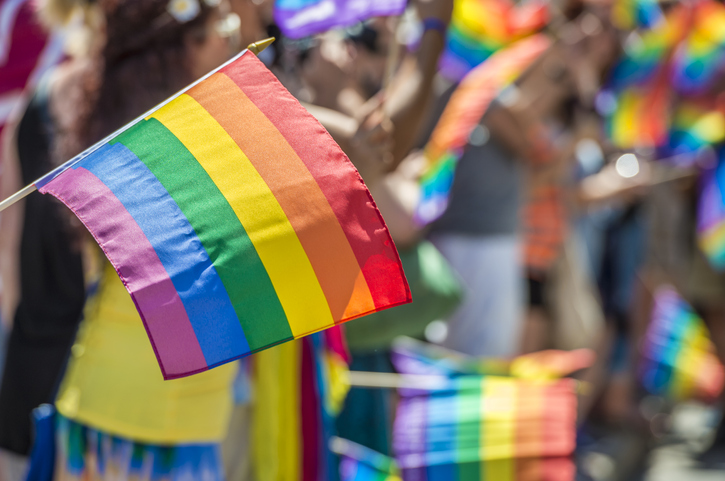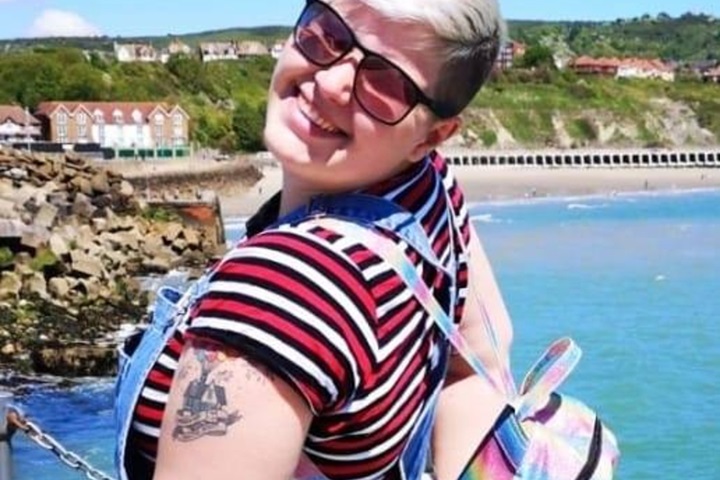Tell us about your career at Kantar
I’ve always been interested in what makes people tick – like many people, I fell into market research after my psychology degree and I’ve never looked back! I joined what was TNS in January 2017 and though we’ve been through many different team structures and dynamics, the atmosphere and culture has only ever evolved for the better. In my day job, we help our clients get the most out of their advertising so that they can connect with customers in the most meaningful way. Watching an advert on TV and knowing that your insight has played a part in that process is a great feeling.
How easy do you find it to talk about your sexuality at work?
I’ve been open and honest since Day 1 – it just comes naturally to me. As Brits we’re great at small talk, and my weekends are normally spent with my partner and stepdaughter, so that’s something I’ll always be able to talk about without it revolving specifically around LGBTQI+ things – surprisingly enough, we do “normal” things like go to the park, watch movies, and play with LEGO.
What does Pride mean to you, and how have you marked the occasion this year?
Pride (as an event) is really meaningful and to me, it’s always an acknowledgement that it’s a protest, not a party. With most Pride events cancelled this year, I’ve been making the most of the virtual events and will spend some time talking with friends, colleagues, and family about LGBTQI+ history.
Pride (as a concept) never goes away, it’s here all year round whether we’re stuck indoors or able to go out and celebrate – I’m incredibly proud that I have the freedom and privilege to be who I want to be.
This year marks 50 years since the first Pride march. What do you think we could achieve in the next 5 years?
I would hope that more of the unconscious biases and microaggressions will be acknowledged. We’ve come a long way in some respects, but we need to change people’s attitudes too.
How active is the LGBTQI+ community at Kantar?
The Pride @ Kantar group has been a game-changer. It’s a cross-divisional group where we can freely share our thoughts, feelings, and ideas. We’re also able to offer support and advice to our colleagues, and that’s a valuable asset for us and the company as a whole. We’ve worked on a number of projects; including events for World AIDs Day, Pride in London and LGBTQI+ History month.
Ultimately, we are a community built on mutual respect (and fun) who offer a support network, share and produce educational resources, and aim to create a better working environment for everyone.
What does a good ally look like?
The key to being a good ally is acknowledging that we are all different. Even within the LGBT+ community there are different issues faced, like bi-erasure and massive amounts of transphobia. Being a good ally means not being afraid to offend; to know that if you ask the question from a place of respectful curiosity rather than hate, you will receive the same respect back.
How do we stand together for equality and promote intersectionality?
Black Lives Matter is such an important cause and it’s important for the LGBTQI+ community to stand with our friends and colleagues of colour every step of the way. We may not fully understand the issues that the Black community faces, but it’s about being an active ally and by saying “I see you”. For LGBTQI+ people especially, we need to remember that the person credited with throwing the first stone (metaphorically) at the Stonewall Inn was Marsha P. Johnson, a transwoman of colour.
I have also been vocal (within Kantar and beyond) about our (dis)abled community. Being LGBTQI+ and having a long-term illness or disability throws up a whole new set of issues and experiences, and it’s important to capture these, too. I’m as proud to be gay as I am to be disabled, and that’s an important statement – our differences bring a unique perspective and only by embracing and listening to everyone can we hope to unite in inclusion.

